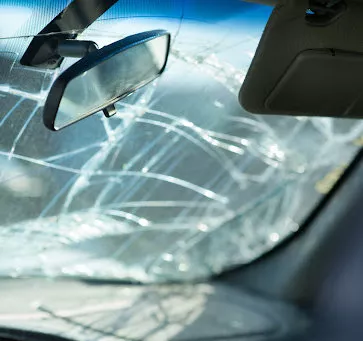What is Tailgating and Why is it Dangerous?

Under Louisiana law, tailgating is defined as a motor vehicle following another more closely than is reasonable and prudent, having due regard for the speed of such vehicle and the traffic upon and the condition of the highway (LA RS 32:81). Tailgating can lead to rear-end collisions, which according to the National Highway Transportation Safety Administration (NHTSA), are the most common type of car accident.
While there are many reasons drivers may have for tailgating—running late, feeling annoyed or angry, or simply not paying attention—the results are tragically the same in many cases. Potentially-deadly rear-end accidents and other Louisiana car wrecks happen every day due to tailgating drivers.
If you’ve been injured in a tailgating accident, you need an experienced car accident injury lawyer from Gordon McKernan Injury Attorneys to handle your case.
What Are the Dangers of Tailgating?
There are times in the flow of traffic when a driver must stop short or suddenly to avoid a collision. Tailgaters, by following too closely, do not leave enough room to stop themselves in the event of the car in front stopping.
In these situations, the risk of a rear-end collision becomes very high. Even if the tailgater manages to avoid a rear-end collision by swerving into another lane, they might merge into another car or cause them to stop short or take evasive action themselves.
Rear-end collisions often cause other rear-end collisions. With each one, the chance of a chain reaction increases—leading to multi-car pile ups that injure dozens of people and stop highway traffic for hours.
Frequent injuries caused by tailgating accidents include neck and back injuries, whiplash injuries, concussions and other traumatic brain injuries (TBI), and catastrophic injuries that can affect their victims for years.
What Kind of Drivers Tailgate?
Nearly everyone has tailgated another car at some point or another. However, some drivers consistently do so, even when knowing the risks. Studies have shown that there are a number of behavioral factors that can contribute to tailgating:
Aggressive driving tendencies
Tailgating drivers tend to exhibit other aggressive driving habits as well. Aggressive driving includes behaviors such as excessive honking, weaving through traffic, cutting off other drivers, speeding, and the like. Young drivers are more likely to be aggressive, behave impulsively, and are more likely to tailgate.

An inflated sense of self-importance
Drivers who believe they’re more important, or that their work is more important, than others on the road are more likely to tailgate. They might view driving as a competition to win, rather than the cooperative activity that it is. If a self-important driver is in a hurry to get where they’re going, they’re more likely to do whatever it takes to “beat” other drivers, which includes risky driving behaviors.
A false sense of security
Some drivers think that their driving skill or their tough vehicles will protect them from the risks inherent to tailgating. However, human reaction time has a hard upper limit: it’s physically impossible to stop a vehicle in time if you’re traveling too close. Too often, self-described “excellent” drivers follow too closely and cause tailgating accidents.
Of course, these behaviors are not universal. Some drivers exhibit one or more of these tendencies but never tailgate, while other tailgaters never exhibit these traits.
What to Do If You’re Being Tailgated
When you find yourself being tailgated by an aggressive driver, you may have the urge to “brake-check” them—tap on your brakes in an attempt to get them to back off. This is a bad idea for two main reasons: if the other driver isn’t paying enough attention, or if you hold the brakes for too long, it can trigger a crash; and it can elevate the situation into a possibly-deadly road rage incident.
Instead, it’s a better idea to react calmly and rationally to other drivers’ dangerous behaviors. Remember: you have no control over their actions, but you can control your reactions. When faced with a tailgating driver, practice defensive driving with the following behaviors:
- Drive the speed limit, or slower if weather conditions or traffic congestion require it. However, in the absence of these adverse conditions, staying with the flow of traffic can avoid tailgaters.
- Stay in the right lane unless you’re passing another vehicle. Not only is it safer to reserve one lane for passing vehicles, in Louisiana, it’s the law.
- Don’t feed their anger by tapping your brakes or making rude gestures. Those actions will only serve to enrage the other driver, leading them to make even riskier decisions.
- Finally, pull into an adjacent lane or onto the shoulder and let the tailgater pass if they are unrelenting. Remember, driving is not a competition, so they didn’t “win.” You’re simply keeping yourself and others safe by avoiding an accident.
Tailgating is never the car in front’s fault. But avoiding a dangerous car accident is of paramount importance when driving. Always practice defensive driving and de-escalate conflict on the road.
What to Do After a Tailgating Accident

Even if you do everything right, you can still get rear-ended. If you were injured in a wreck caused by a tailgating driver, contact a Louisiana personal injury attorney with Gordon McKernan Injury Attorneys today. We have the experience and the drive to get you the compensation you need to pay for your medical bills, surgery costs, lost wages, and other costs of your injuries.
Hold the tailgating driver accountable for their dangerous decisions by calling us today at 888.501.7888. We offer free consultations to our clients, and we won’t charge you a dime until we win your case—that’s the G Guarantee.

